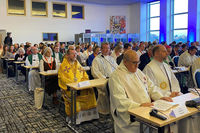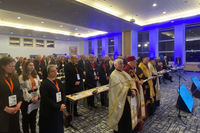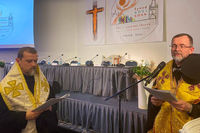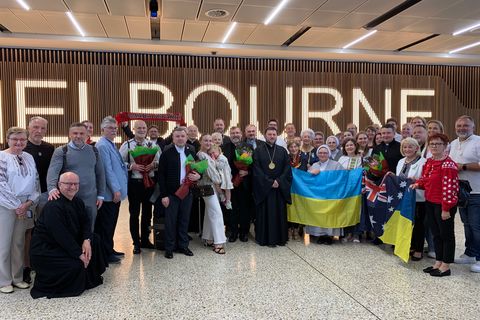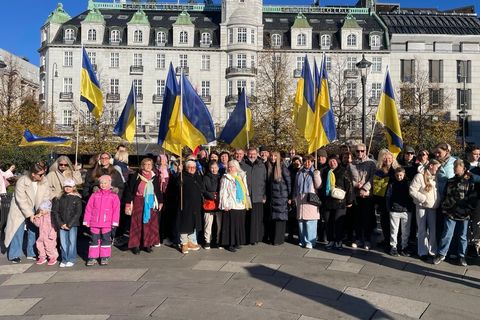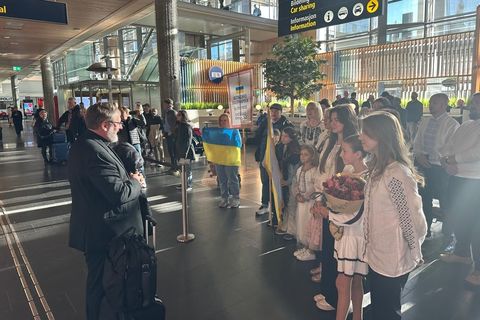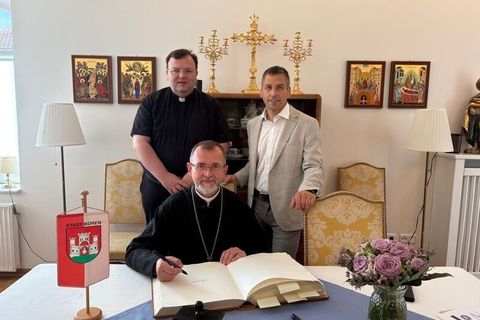“Europe, do not forget your martyrs!” — Bishop Bohdan Dzyurakh at the Continental Assembly of the Synod
In Prague, the capital of the Czech Republic, from February 5 through February 12, the Continental Assembly of the Synod is meeting on the topic “The Church in Europe on the Synodal Path: Communion, Participation and Mission.” One of the participants of this meeting was Bishop (Bohdan) Dzyurakh, who is Apostolic Exarch for Ukrainians of the Byzantine Rite in Germany and the Scandinavian countries, and is President of the President of the Commission of Social Pastoral Care of the Council of Episcopal Conferences of Europe.
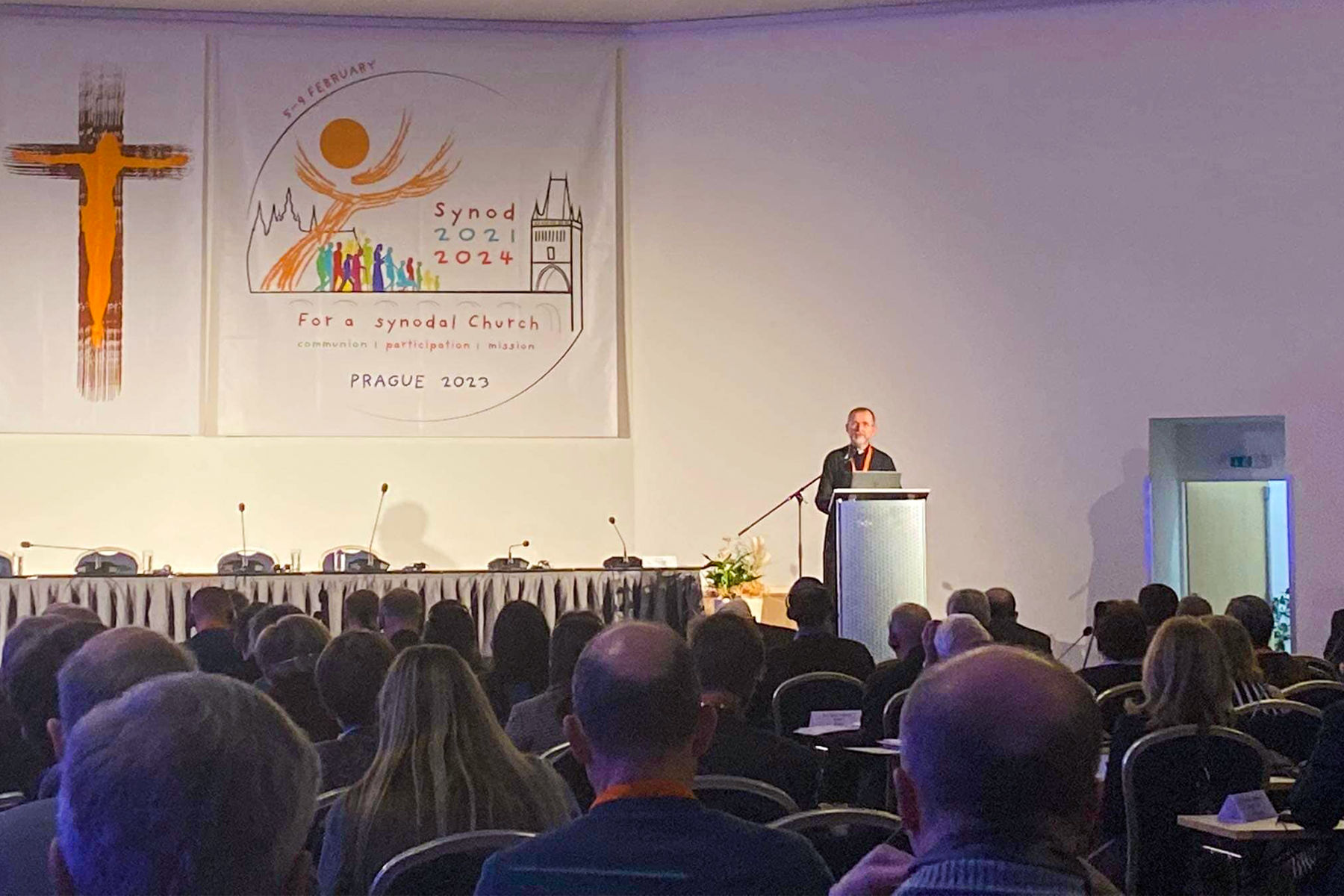
During his presentation, the bishop shared three important themes. He reminded those present that they are all bearers of the faith that was given to humankind by the Apostles, then preserved for centuries, proof of which are the many European martyrs, in particular during the past century, which has been called “the century of martyrs.” Bishop Bohdan called upon all Europeans to remember their martyrs: “Europe, do not forget your martyrs! — this is a warning that should not be ignored,” — said the Apostolic Exarch for Ukrainians of the Byzantine Rite in Germany and the Scandinavian countries.
The bishop expressed his opinion about a united European martyrology that could be helpful in confirming the shared memory of all the martyrs of the continent, one that would enable people to be inspired by this testimony of faith in order to grow in their own faith and loyalty to a Christian Catholic identity.
The second important moment of Christian identity identified by the bishop was that of “living memory.” “To create a memory of the martyrs also means speaking the truth about the causes of their persecution and about the persecutors themselves,” said Bishop Bohdan, who emphasized, “Europe turned the page on the Communist past too quickly, without making a serious examination of conscience regarding the crimes of the Communist regimes.”
As an example, the bishop cited the words of French historian Stéphane Courtois, the author of the “Black Book of Communism,” who argued that “European society will not restore its identity or harmony (today we would say — peace) if it tries to hide the memory of the communist tragedy.” Then, continuing on behalf of himself, the bishop emphasized, “and also if one does not draw sincere and lasting conclusions from this examination of conscience. The tremendously fierce and cruel war that has clear signs of genocide against the Ukrainian people is, in my opinion, one of the consequences of the unprocessed and unpurified history of the communist past.” Therefore, he pointed out, the Catholic Church in Europe, with its prophetic mission, could revive, and continue this process of European examination of conscience and purification of memory, not only on the spiritual level, but also on the socio-political and scholarly levels.
And the third important theme the bishop introduced was “healing of wounds.”
“Today, the Church in Ukraine, literally and daily, lives its identity as a ‘field hospital.’ In addition, here in Europe, the Church has become a shelter, or rather a family home, full of compassion and mercy for millions of Ukrainian refugees. You have not lacked words of consolation, nor courageous declarations, nor generous and long-lasting deeds that help us endure this trial and strengthen our hope for a just and lasting peace,” said the bishop noting that thanks to the hospitality and merciful love throughout Europe, there is no migrant crisis.
In conclusion, Bishop Bohdan, on behalf of the entire Ukrainian people, expressed his deep and sincere gratitude to all participants of the Continental Assembly of the Synod, urging all to continue to unite in prayer and in deeds of merciful love with the firm hope that God will bless everyone with his peace.
Press Service of the Apostolic Exarch for Ukrainians of the Byzantine Rite in Germany and the Scandinavian countries
